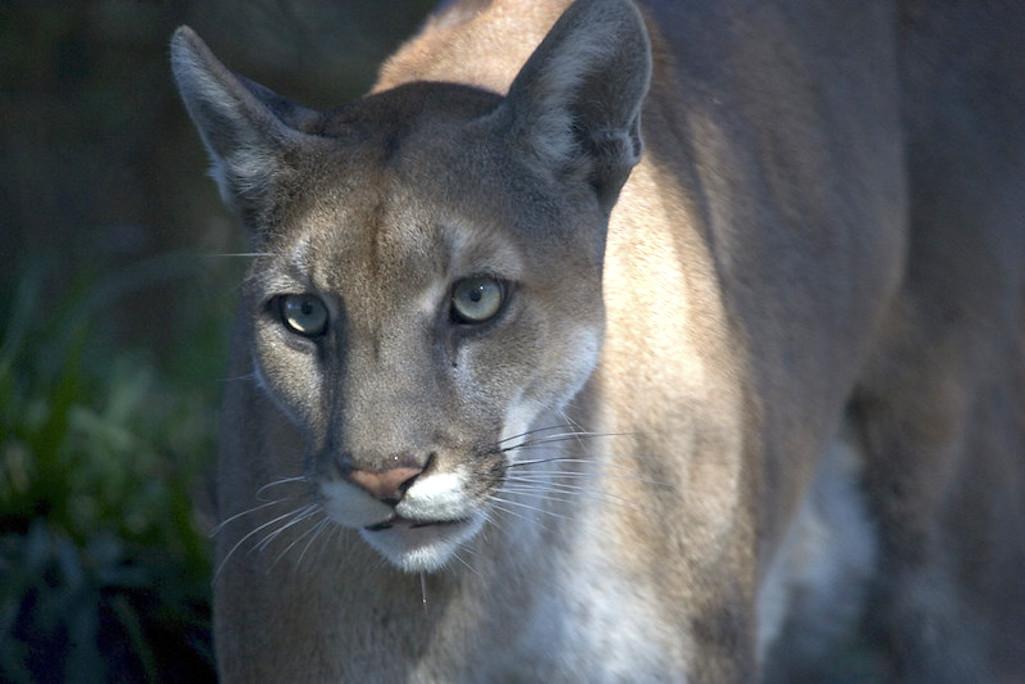
Group calls on U.S. Fish and Wildlife Service to conduct status review into endangered Florida panther/NPS file
A long-running gap in reviews into the health of the endangered Florida panther population has prompted a petition to the U.S. Fish and Wildlife Service that it produce the report as required. According to the South Florida Wildlands Association, the Fish and Wildlife Service last conducted a status review for the population back in 2009, and should have produced another in 2014.
“Given the massive amount of habitat loss and other threats taking place in the Florida panther’s core habitat of Southwest Florida, it is essential that FWS provides the most accurate picture of the panther’s current status possible to ensure that Florida’s state animal does not disappear,” said Matthew Schwartz, the association's executive director. “That is the core purpose of the Endangered Species Act and the reason the Florida panther was listed as endangered in the first place.”
According to the FWS, “A five-year review is a periodic review of the status of species listed under the Endangered Species Act of 1973 ... that is conducted at least once every five years. The purpose of a five-year review is to ensure that listed species have the appropriate level of protection under the ESA.”
In 2017, FWS published an intent to conduct the required review in the Federal Register, but nothing was ever seen or completed, the wildlands association said in a release.
The legally required review would be a comprehensive document that includes the current population and distribution, habitat conditions, threats to the species, conservation measures, and new information and data since the last assessment was carried out. Based on the FWS’s findings, the review would also recommend whether the panther’s endangered status should remain or if the species should be downlisted to threatened or removed from the endangered species list entirely. Based on current conditions, SFWA believes the last two alternatives are extremely unlikely.
According to the Florida Fish and Wildlife Commission, at least six of the cats have been killed this year through June 12. All died as the result of a vehicle collision, the agency notes.
Twenty-seven panthers were killed in 2022, all but two in vehicle collisions. One new litter, with three kittens, was reported last year by the wildlife agency.
In its release, South Florida Wildllands Association said there has been "a flood of new threats" since the last status assessment was released and since the last formal population count was conducted in 2017. That count found an estimated 120 to 230 panthers and is the one currently in use, the organization said.
"Unfortunately, it is also completely outdated since the upper number in the estimate, 230, was obtained by taking the density of panthers in the best panther habitats, e.g., the Florida Panther National Wildlife Refuge, and extrapolating that density to the entire panther primary zone," the group said.
"It’s a ‘pie-in-the-sky’ number that has been taken way too seriously by the public," said Schwartz. "Vast swaths of the panther’s primary zone, such as Everglades National Park and the southern parts of the Big Cypress National Preserve, the two largest public lands in the primary zone by far, barely support panthers anymore. Much of those wetlands were never ideal for the panther to begin with and, with invasive Burmese pythons eating their way through the panther’s mammalian prey base, they are now far worse. According to the most recent deer survey conducted in the Big Cypress, the deer herd has collapsed in most of the preserve’s management units.”
Other threats that were imperiling the panthers included "massive amounts of development (and traffic increases) that have been constructed in the primary and secondary zones of the panther. In terms of future threats, tens of thousands of acres of new residential and commercial development in the core habitat are currently working their way through state and local approval processes," the organization said.
"The Florida panther is a symbol of wild Florida — in our state and around the world. Up till now, it’s been incredibly resilient and has survived everything we’ve thrown at it, from habitat loss and crowded roads and highways to bounty hunting when the panther was considered a ‘varmint,’" said Schwartz "But even the panther has a limit. The FWS must conduct the most accurate assessment of the species possible so that county, state, and federal decision-makers have access to the best available science. Decisions that will determine the future of the Florida panther are being made now. Under the Endangered Species Act, FWS is obligated to undertake and publish a new status review immediately.”
South Florida Wildlands Association is a Florida non-profit established in 2010 for the protection of wildlife and habitat in the Greater Everglades.



Add comment